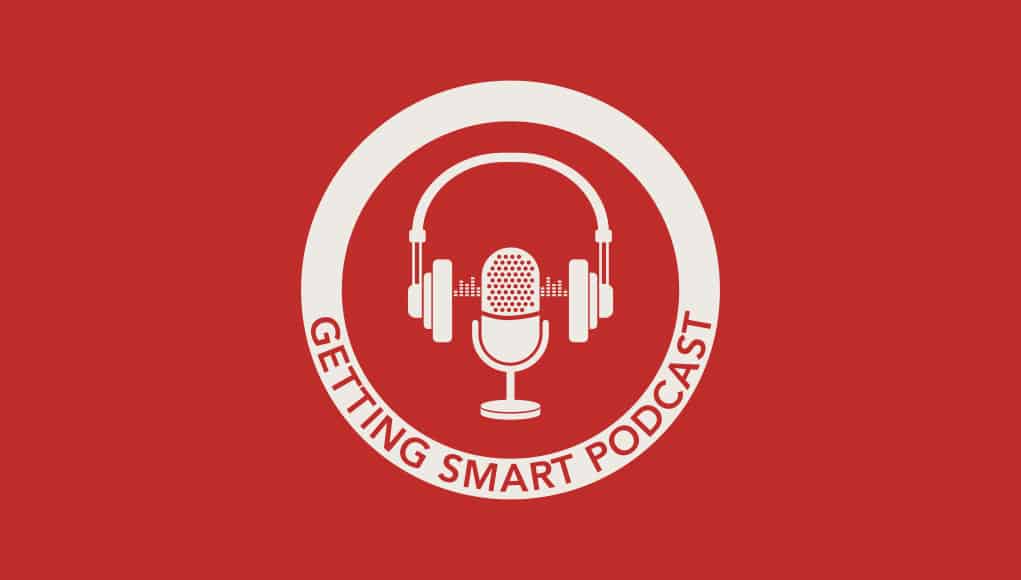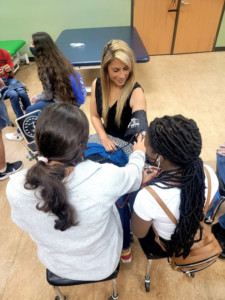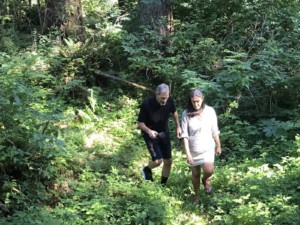Getting Smart Podcast | Barry Schuler on the Power of Networks

It wasn’t Al Gore who invented the internet, it was Barry Schuler.
At least he was one of the guys in the early 90s that spotted the rise of interactive media, computing power, graphics and hyperlinking. He built a company that was sold to America Online and they helped turn the number three online service into a media powerhouse. Marc Andreessen added the Mozilla browser and the Information Age was born.
Here Barry chats more with me about watching the creation of the internet, why he supports New Tech Network, the future of smart machines and the power of networks.
Podcast Highlights
Some of us old folks remember that in the early 90s, content creators thought it was a big deal that they didn’t need to print everything to distribute it. They could just send it down a little dial-up pipe to faithful readers. Then along came AOL and people joined interest groups and started hanging out in chat rooms–it was social from the start and the beginning of co-creating on platforms.
For the last 10 years, Schuler has been a venture investor at DFJ, which has invested in iconic companies including Box, SolarCity, SpaceX, Tesla, Twitter, Tumblr and Yammer.
Now that most of the biggest companies in the world are platforms, we asked Schuler if networks were the new new thing. To the contrary, he said, “Philosophically they are the oldest idea in world manifest as religion.” We don’t usually think of religion as a network, but Schuler said for thousands of years religion served as a platform of beliefs, gathering places, and collaboration.
Religions were the first trust platform for a perplexing world. Parochial schools were powerful networks, explains Schuler, designed to protect dogma and resist change. In the industrial era, said Schuler, “We created new religions, industrialism itself as a belief system.” It employed same practice as religion. Schools took on the same industrial approach.
With broadband and a connected, “We see network effects firing up worldwide,” said Schuler.
Sangeet Choudary, co-authors of Platform Revolution, says network organizations scale efficiently, unlock new sources of value, use data-based tools, and invite users in. More schools are beginning to join platform networks but Schuler said we should be cautious about trying to draw too many parallels between business and education.
Why Barry Supports New Tech Network
Schuler moved his young family to Napa in the mid-90s. He and friends started the independent progressive Blue Oak School. The experience sparked his personal philanthropy. He realized the private school was not scalable and could exacerbate problems in public education.
He visited New Tech High in Napa, flagship of the young New Tech Network. He saw the potential for network effect He appreciated that they were not a management organization but trying to be enabling network.
Barry likes New Tech’s core project-based learning model but appreciates the ability for local communities to create unique missions. “If you’re successful in business and want to help,” said Schuler, “I’ve found that it’s hard to put philanthropic capital to good use.”
Schuler chairs the New Tech Board and provides significant support. “I’m passionate about it, and about the team doing the work, I’ve seen it work.” Barry is particularly excited about the addition of k-8 schools starting with Katherine Smith and Bulldog Tech in San Jose.
As board chair for the New Tech Network, Schuler is proud of the 200 school network. He sees network effects as teachers co-construct projects across the network. He likes the balance of a common learning model and platform with local ability to shape the mission. Now that they serve hundreds, Schuler thinks there is potential to serve thousands of schools.
What AI Means for Grads
Barry thinks exponential technology and the automation economy means young people need to rethink careers, “Even doctors and lawyers will be augmented then replaced and new positions will be created. Adaptability and flexibility will be most important,” said Schuler. “Creativity, collaboration and communication–the things students learn at New Tech–are critical.”
Barry sees a crossroad for life on earth. “We are unlocking the code of life and putting it to work. With AI, we may even be creating a new life form. It’s clear that both technologies have potentially profound dark sides,” he said.
He thinks we need community conversations about the implications of AI and that all of us will need to remain “nimble, flexible and learn to embrace new things.”
This blog is part of a multi-year campaign studying networks and their effect on education and transformation. Our work will culminate in a book publishing in 2018. Learn more and join the conversation using #NetworkEffect.
For more see:
- Wall-to-Wall Project-Based Middle School Learning
- An Ambitious Plan to Make the Nation Proud of its Public Schools
- The Two Most Important Technologies Of Our Time Are Also The Most Dangerous
Stay in-the-know with all things EdTech and innovations in learning by signing up to receive the weekly Smart Update. This post includes mentions of a Getting Smart partner. For a full list of partners, affiliate organizations and all other disclosures please see our Partner page.








0 Comments
Leave a Comment
Your email address will not be published. All fields are required.